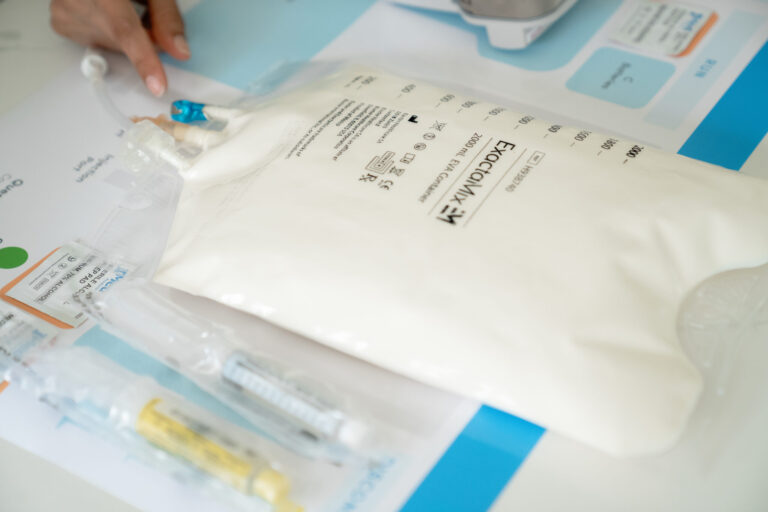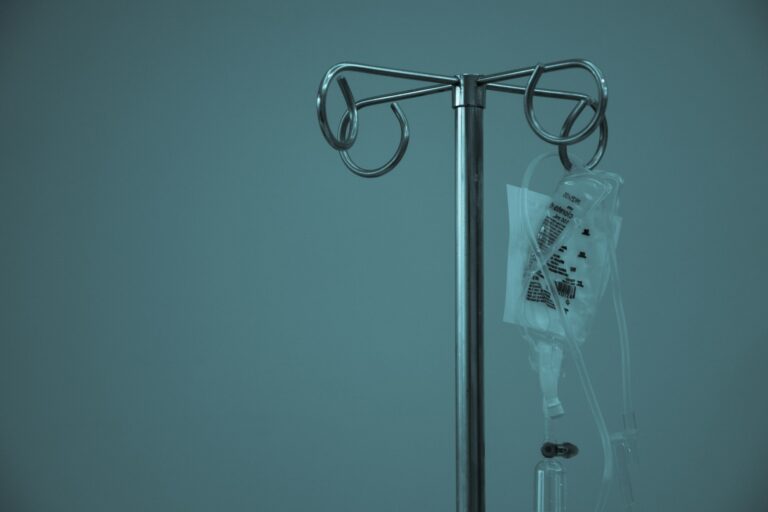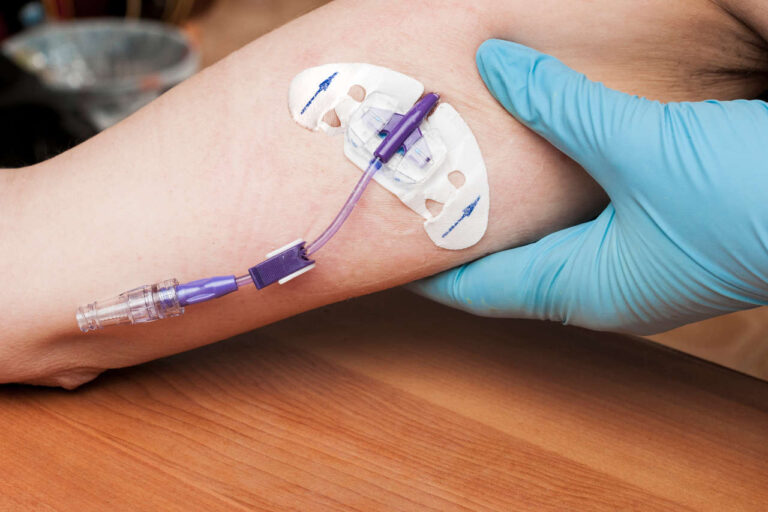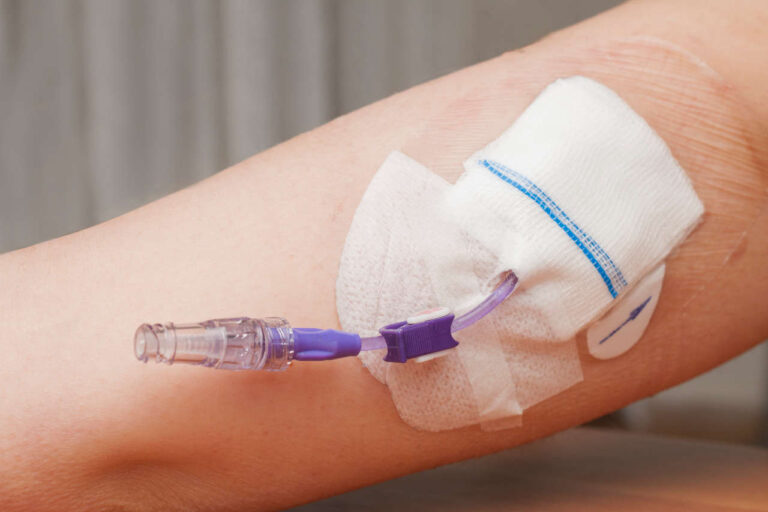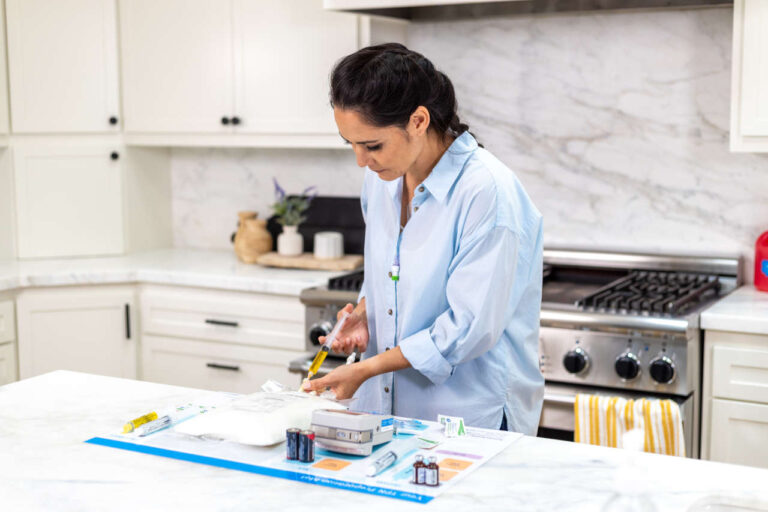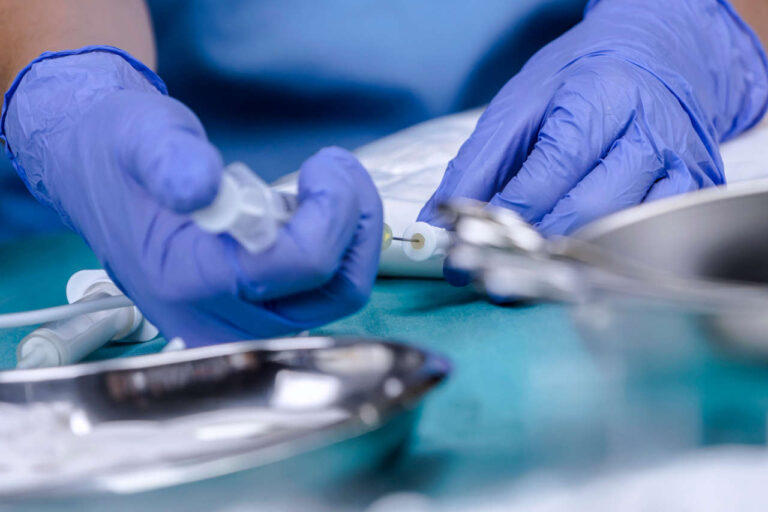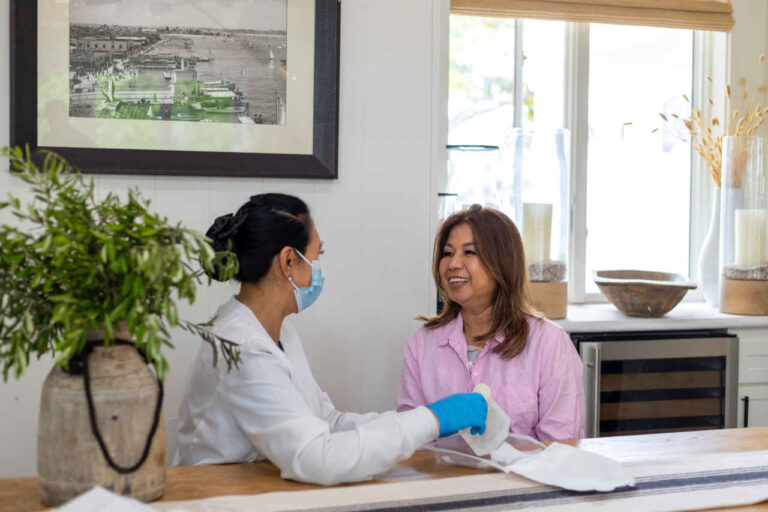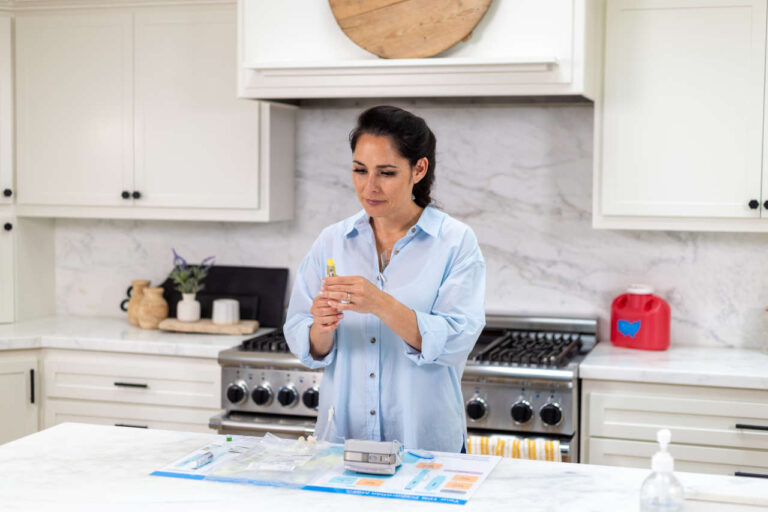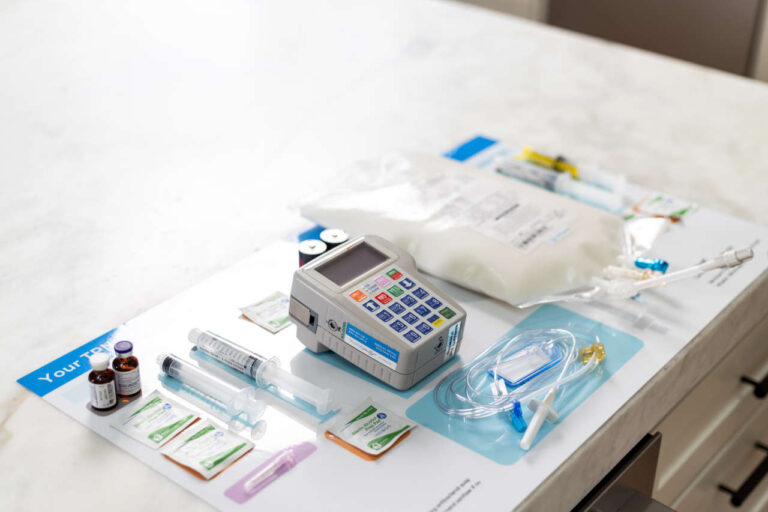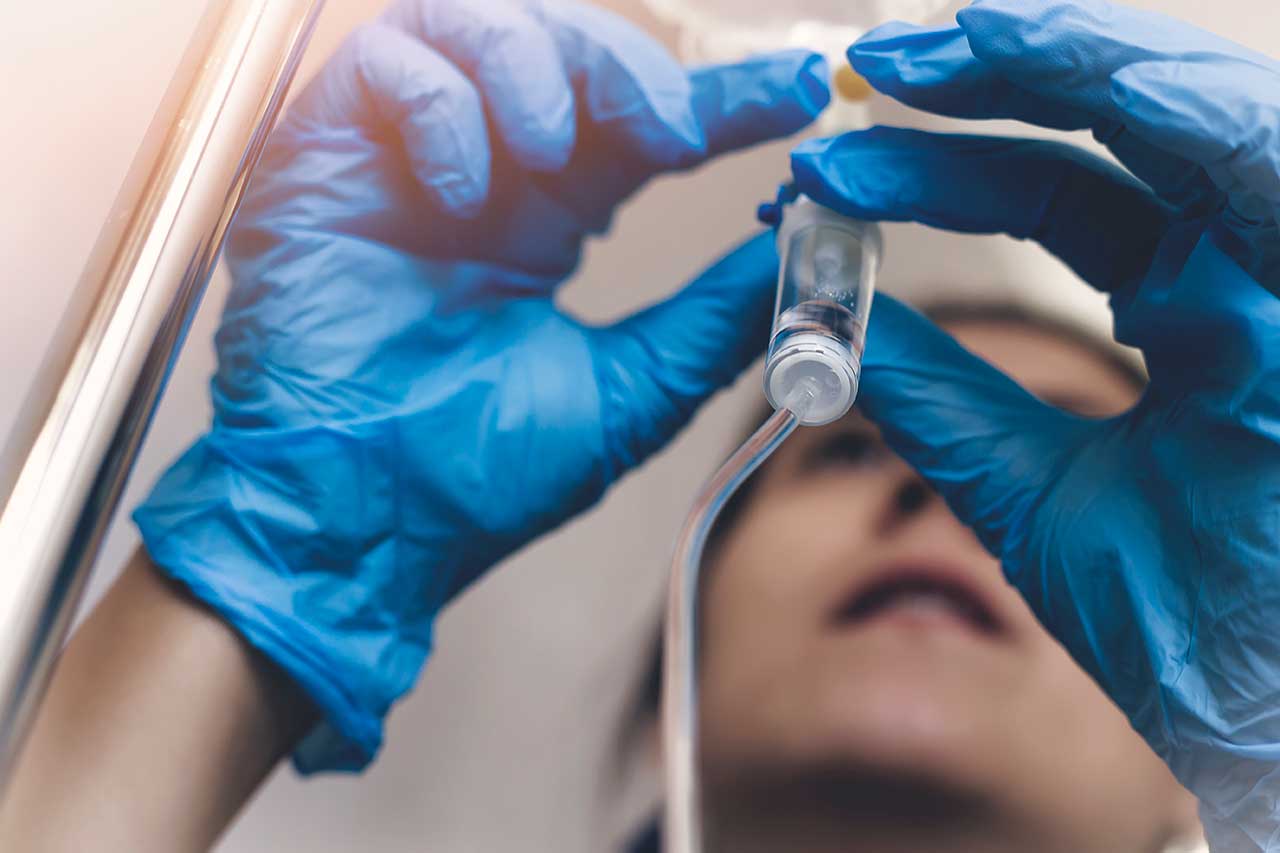
Mientras estoy en casa Terapia con TPNSi experimenta alguna complicación menor, no se preocupe demasiado, ya que la mayoría se pueden resolver fácilmente sin necesidad de ayuda externa. Esta guía de solución de problemas del TPN enumera algunas posibles complicaciones que podría enfrentar y cómo manejarlas.
Siempre en stock
Inventario completo de fluidos intravenosos, listo para ustedEl medicamento no se está infundiendo
Este problema puede surgir si alguna de las abrazaderas, catéter, tubos o bomba de infusión están bloqueados o no están abiertos correctamente.
Cómo manejarlo: Si la solución no se infunde, revise todas las pinzas del catéter y la bomba de infusión y asegúrese de que estén abiertas y en la posición correcta. Además, asegúrese de que la bolsa esté correctamente perforada y de que la bomba esté encendida.
Experimenta fiebre y escalofríos durante la infusión.
Puede experimentar escalofríos y fiebre durante la infusión si los medicamentos están demasiado fríos (no a temperatura ambiente) o si tiene una infección.
Cómo manejarlo: Si experimenta escalofríos o fiebre, detenga la infusión y enjuague el catéter. Deje que la bolsa TPN alcance la temperatura ambiente durante 2 a 3 horas y reinicie la infusión. No la caliente con medios artificiales ni la exponga a la luz solar directa.
Además, revise el lugar de la infusión para detectar cualquier signo de infección, como hinchazón, enrojecimiento, dolor o sangrado. Consulte a su médico de inmediato si presenta fiebre de 38 °C o superior, o si observa cualquier signo de infección.
El líquido está goteando
La causa más obvia de una fuga es una conexión suelta entre el tapón de inyección y el tubo. Otra causa puede ser un catéter roto o dañado. tapa de inyección.
Cómo manejarlo: Ajuste la conexión entre el tapón de inyección y el tubo. Asegúrese de que todos los suministros médicos conectados no estén sueltos, dañados ni rotos. Si observa una fuga en alguna parte del catéter, apague la bomba de infusión, sujete el catéter correctamente en el punto de fuga y contacte a su profesional de la salud.
Hiperglucemia o problemas con el nivel de glucosa en sangre
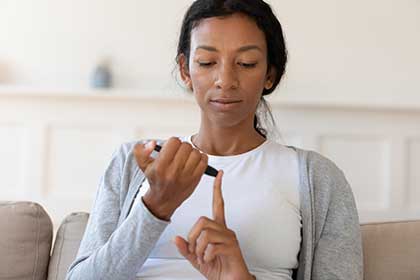
Si experimenta síntomas como debilidad, dolor de cabeza, pérdida del conocimiento o sed/orina/apetito excesivo, controle sus niveles de glucosa en sangre inmediatamente con la ayuda de un glucómetro.
Cómo manejarlo: Su profesional de la salud le establecerá objetivos para sus niveles de azúcar en sangre; asegúrese de que siempre los alcance. Si su nivel de azúcar en sangre supera el objetivo establecido, debe notificar a su médico de inmediato.
Si su nivel de glucosa en sangre es inferior a 70 mg/dl y experimenta síntomas como sudoración, nerviosismo, temblores, mareos, palidez e irritabilidad, coma o beba algo con azúcar, como jugo de fruta. Luego, consulte a su médico. Hipoglucemia Puede ocurrir si ha tomado demasiada insulina o ha interrumpido bruscamente la solución TPN. También puede ocurrir si su fórmula TPN no le proporciona los niveles diarios de glucosa necesarios.
Pregunte por TPN Infusión en casa
Sobrecarga de fluidos
La sobrecarga de líquidos puede ocurrir si su cuerpo ha retenido líquidos o sales en exceso. Los signos y síntomas que puede experimentar con la sobrecarga de líquidos pueden incluir:
- Dificultad para respirar
- Hipertensión
- Hinchazón en los pies, tobillos o abdomen.
- Venas del cuello abultadas
- Aumento de peso por encima del aumento de peso diario máximo establecido por su proveedor de atención médica cuando comenzó su terapia.
Cómo manejarlo: Si experimenta signos y síntomas de sobrecarga de líquidos, consulte a su proveedor de atención médica de inmediato.
Síntomas relacionados con la nutrición
Los síntomas relacionados con la nutrición pueden deberse a diversos factores. Estos problemas pueden incluir:
- Dolor de cabeza
- Fatiga
- Irritabilidad
- Cambio en el cabello y/o uñas
- calambres musculares
- Boca seca
- Cambios en el gusto
- Cualquier cambio inusual en su estado físico o mental
- Aleteo cardíaco (latidos cardíacos irregulares)
- hematomas excesivos
- Sequedad o sarpullido
- Dolor de huesos
Cómo manejarlo: Consulte a su proveedor de atención médica si tiene alguno de los síntomas anteriores.

